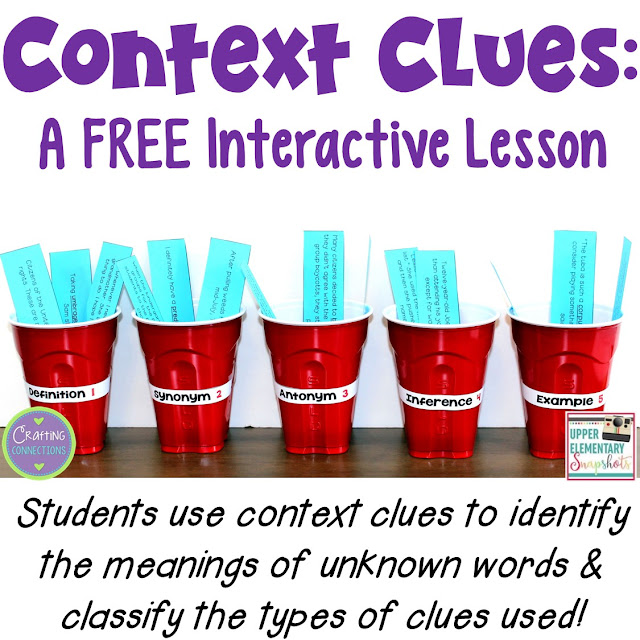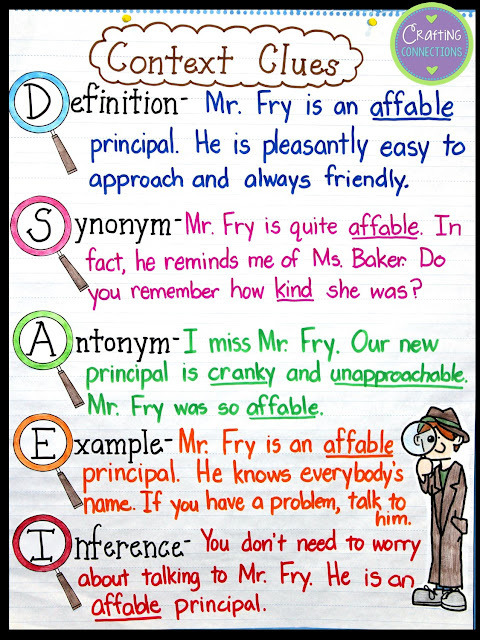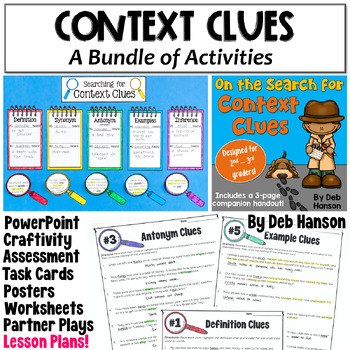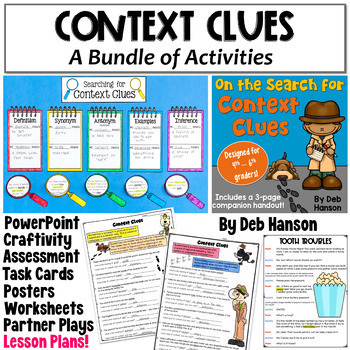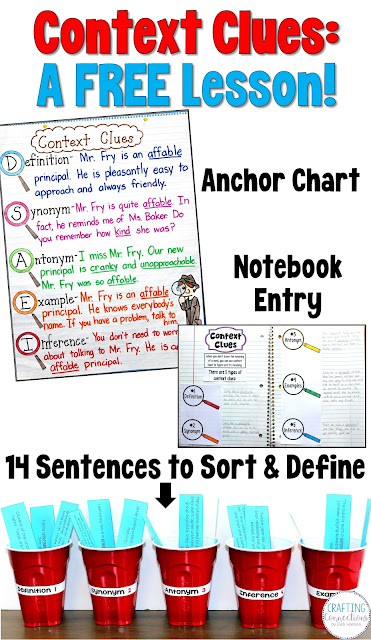Hi there! It’s Deb Hanson from
Crafting Connections, and I’m going to share a
free context clues lesson with you today. This lesson is arranged in a similar way to a
character traits lesson that I shared with you last year! If you
do decide that you want to try this activity with your students, be sure to click on the image below. The cup labels and sentence strips for this lesson are available in the
FREE download.
I almost always start my ELA units with a PowerPoint presentation to introduce the topic. Therefore, on the first day I would show my
Context Clues PowerPoint to my students, and
this lesson would occur on the second day of the context clues unit. To start this lesson, I would use an anchor chart to review the five main types of context clues.
After distributing a white board, marker, and eraser to each student, I would present five plastic cups by spreading them across a table or chalkboard tray. As you can see, the cups have been labeled with the five types of context clues, and each cup is assigned a number. I also have the small strips of cardstock printed and cut apart. These strips contain short sentences with underlined words.
Before I begin reading the sentence strips, I will explain the sequence of the activity:
- I will place one of the strips beneath a document camera and read the sentence aloud.
- Students will attempt to use context clues to determine the meaning of the underlined word. They will jot down a simple definition on their white board. They will also document which type of context clue they used by writing a cup's number on their white board.
- Students will discuss their answers with a partner. If students wish to change their answer at this time, they can certainly do that.
- As a class, we will discuss the meaning of the word, and the type of context clue provided.**
- We will drop the sentence strip into one of the cups.
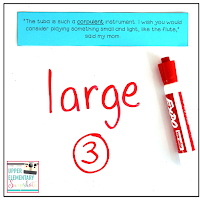
**It is important to note that context clues can often fit into multiple category types. For example, a context clue could fit as both a definition and a synonym. Furthermore, according to your students' language levels and background knowledge, different students may use different strategies to determine the meaning of an unknown word. For instance, a student who does not know the meaning of the provided antonym may have to infer to the best of his or her ability. In terms of deciding which cup to drop the sentence into, you may want to let the majority determine your class's final answer.
After we work through all fourteen sentence strips, I conclude the lesson by having students add a context clues page to their interactive notebooks. Students glue the title and the magnifying glasses into their notebooks, and then they write their own sentences that show examples of each of the five types of context clues.
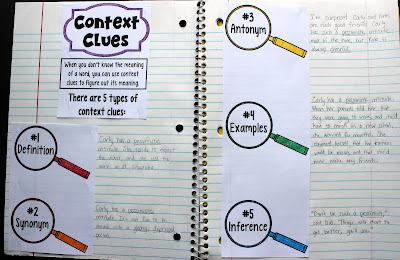
If you have time, hop over to my blog, where I explain how I use two published books to further analyze how context clues are used in books.
If you are looking for additional resources for teaching context clues to your upper elementary students, feel free to check out the following resources. I have placed my bundle images here, but all of these items are also available for individual purchase.
A Context Clues Bundle designed especially for students in
2nd and 3rd grade:
A Context Clues Bundle designed especially for students in
4th, 5th, and 6th grade:
Thanks for stopping by today!
Pin for future reference:

